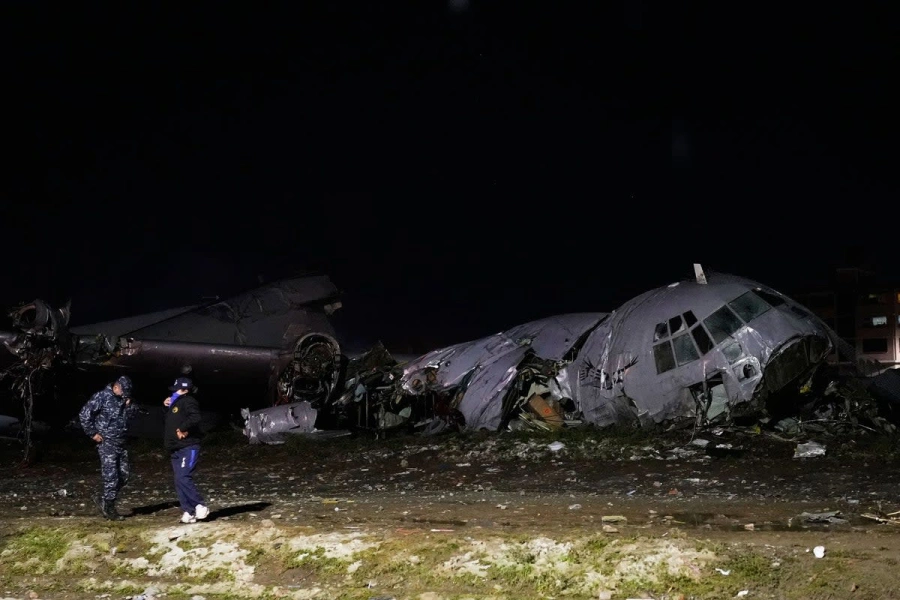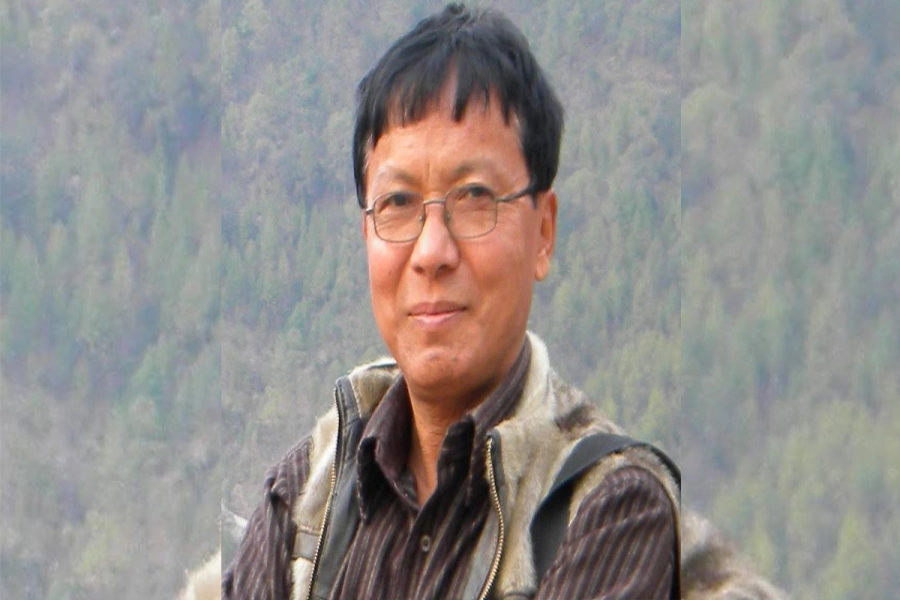NAWALPARASI, Jan 4: Kathahawa Mushahar of Guthiprasauni village hardly has any experience of staying warm during the winter season. Neither has he ever got warm clothes on his body, nor has possessed quilts and blankets at home. Since childhood winter for him means shivering with cold for hours and waiting for the sun to rise and shine. His plight is shared by all the 45 Mushahar families that live in a settlement some 40 kilometers away from the district headquarters Parasi.
“Winter is just like this for us always. We shiver throughout winter, especially at night and stop shivering if the sun shows up by overcoming the thick fog that mostly envelopes the skies during the season in Tarai,” Kathahawa said.
Poverty could be the single term to describe the community. No matter how many governments changed in the last few decades, their plight remains the same. Mushahars, however, blame it on their fate.
The art of dressing

“It is our fate that we were born poor and because of it we have to suffer from this cold. Even our children were born with the same fate. They also shiver from the cold every winter,” said Kathahawa. Each of the 45 families in the village has around six to seven family members.
They live in huts made of straw and plastics and their children rarely attend school. Due to lack of health awareness, they rarely visit hospitals even when they fall ill. “We are on our own. It seems that we don't even exist for the government. We are not provided with any of the facilities that a citizen gets from the state. We don't have access to electricity, or drinking water. We have been living a life of deprivation.”
Their children follow them to work throughout the year - summer or winter or rain. In lack of resources, these children wear whatever clothes they have, through summer or winter. Though seasons change, their clothes remain the same.
Another Mushahar, Chhedi expressed concerns that in lack of education their children are destined to bear the same fate as their parents. “For attending school, the children ask for dress and stationery. Most of us cannot provide that. So, they hang around their parent's working place through the day,” Chhedi said. The village does not have a single member who has passed SLC, though there are some teenagers who dropped out in sixth and seventh grade.
“Our biggest struggle is to earn daily square meals for the family. Our life is so much occupied in meeting this objective that we rarely think anything else,” he stated adding that the cold in winter makes it harder for them to survive.
Mushahars families use straw to keep themselves warm. But, the straw thatched roofs do not shelter them adequately from dew. The straw mats, which they use both as mat and blanket, are not able to keep them warm, Chhedi said.





































